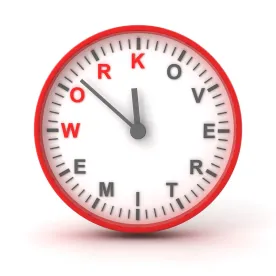In July 2017, the Oregon Legislature passed House Bill 3458, which is expected to be signed by Governor Kate Brown. The new law will permit employers to pay nonexempt employees in mills, factories, and manufacturing establishments the greater of daily or weekly overtime, reversing recent guidance from the Oregon Bureau of Labor and Industries (BOLI) that had required manufacturing employers to “pyramid” (i.e., pay both) daily and weekly overtime hours. However, the law will also impose new maximum limits on hours in the workweek for manufacturing employees.
When Will the Law Take Effect?
The provision of the law affecting how manufacturing employers calculate daily and weekly overtime takes effect upon the law’s passage. The provisions that impose new maximum limits on hours in a workweek take effect January 1, 2018.
Which Employers Are Affected by the New Law?
The law applies to most Oregon employers engaged in “manufacturing,” defined as the “process of using machinery to transform materials, substances or components into new products.” The term “machinery” means “material-handling equipment and power-driven machines powered by electricity, nuclear and fossil fuels, hydroelectric power, geothermal power or another power source other than by human hand, foot, or breath.” Certain exceptions exist for sawmills, shingle mills, planing mills, and logging camps.
Which Employees Are Covered by the Law?
The law applies to employees employed in mills, factories, or manufacturing establishments. However, the law does not apply to employees “whose principal duties [are] administrative in nature or who are not otherwise engaged in the direct processing of goods in the usual course of the employee[s’] duties.”
There are also numerous exemptions set out in rules promulgated by BOLI. For example, the law does not apply to supervisors, managers, foremen or forewomen, or other employees whose “primary duty” (i.e., who spend more than 50 percent of their time) supervising and directing work. In addition, employees are not considered “employed in” a mill, factory, or manufacturing establishment if they perform duties that do not include work in connection with production machinery and are in a location that is physically separated from the actual production process by means of an architectural barrier. For example, a receptionist in a front office or administrative staff in a back office who are physically separated from a production floor would not be considered “employed in” a mill, factory, or manufacturing establishment.
A determination of whether an employee is exempt based on his or her primary duty must be made on a daily basis because an employee’s status may vary from day to day. For that reason, employers must establish the beginning and ending time of the workday to be used for purposes of complying with the law or—by default—the day will be deemed to start at the beginning of an employee’s shift and end 24 hours later.
Does the Law Apply to Employees Subject to a Collective Bargaining Agreement?
No, provided that a collective bargaining agreement (1) is in effect at the employee’s worksite; (2) contains a provision that limits the employee’s required hours of work; and (3) contains a provision for the payment of overtime hours of work. This exception also applies if an existing agreement meeting the foregoing requirements is not renewed, extended, or is otherwise not in force, provided that the parties continue to follow the agreement’s provisions.
How Does the Law Change the Way in Which Overtime Pay Is Calculated?
As noted in previous posts, in December of 2016, BOLI changed its guidance to employers on the payment of daily and weekly overtime hours to employees in mills, factories, and manufacturing establishments. Under BOLI’s revised guidance, the requirement to pay overtime wages for working more than 10 hours in a day under Oregon Revised Statutes (ORS) 652.020 and the requirement to pay overtime wages for working more than 40 hours a week under ORS 653.261 operated independently of each other, without an offset. As a result, BOLI directed employers to “pyramid” the overtime hours—i.e., calculate the amount of overtime earned by the employee under each statute and pay both overtime amounts to the employee.
The new law restores the overtime calculation method that BOLI had historically advised for employers: When employees who are entitled to daily overtime have worked more than 40 hours in a workweek and have also exceeded the maximum number of hours on one or more days in the workweek, thereby earning daily overtime, the employer should calculate overtime hours worked on both the daily and weekly bases and pay the greater amount.
The law further clarifies that a “workweek” means a “fixed period of time established by the employer that reflects a regularly recurring period of 168 hours or seven consecutive 24-hour periods.”
What Are the New Limitations on Maximum Hours in a Workweek?
Under ORS 652.020, most mills, factories, and manufacturing establishments are already prohibited from permitting nonexempt employees to work more than 10 hours in a 24-hour period, though employees may work a maximum of three additional hours of overtime, for a total of 13 hours in a single day.
Under the new law, ORS 652.020 is modified to impose the following additional limitations on hours in a workweek:
-
Covered employees may not work more than 55 hours in any one workweek; however, an employee may “work up to 60 hours in one workweek if the employee requests or consents in writing to work more than 55 hours in the workweek.” Different maximum limits apply to employees employed in sawmills, planing mills, shingle mills, or logging camps.
-
If an employer is eligible for an “undue hardship period exemption,” the employer may permit employees to work up to 84 hours per workweek for four workweeks and up to 80 hours per workweek for the remainder of the undue hardship period.
-
An employer is eligible for an undue hardship period exemption “if the employer, in the ordinary course of the employer’s business, processes perishable products.” To claim a hardship period exemption, employers must provide notice to BOLI and obtain written consent from each affected employee. The notice and consent forms will be prescribed by BOLI in subsequent guidance.
The changes to the law also include specific rules for persons employed in canneries, driers, and packing plants that are located on farms and that primarily process products produced on the farms, and for persons employed by seafood processors.
What Are the New Enforcement Provisions?
The law makes it unlawful for employers to discharge, refuse to hire, discriminate, or retaliate against employees or prospective employees who inquire about their rights to overtime compensation under the law, report violations, file complaints, or decline to consent to work more than 55 hours in a workweek. Employees may file complaints with BOLI to enforce their rights or file fee-bearing private civil actions. In addition to recovering damages, BOLI has authority to assess civil penalties of up to $3,000 per violation.





 />i
/>i

